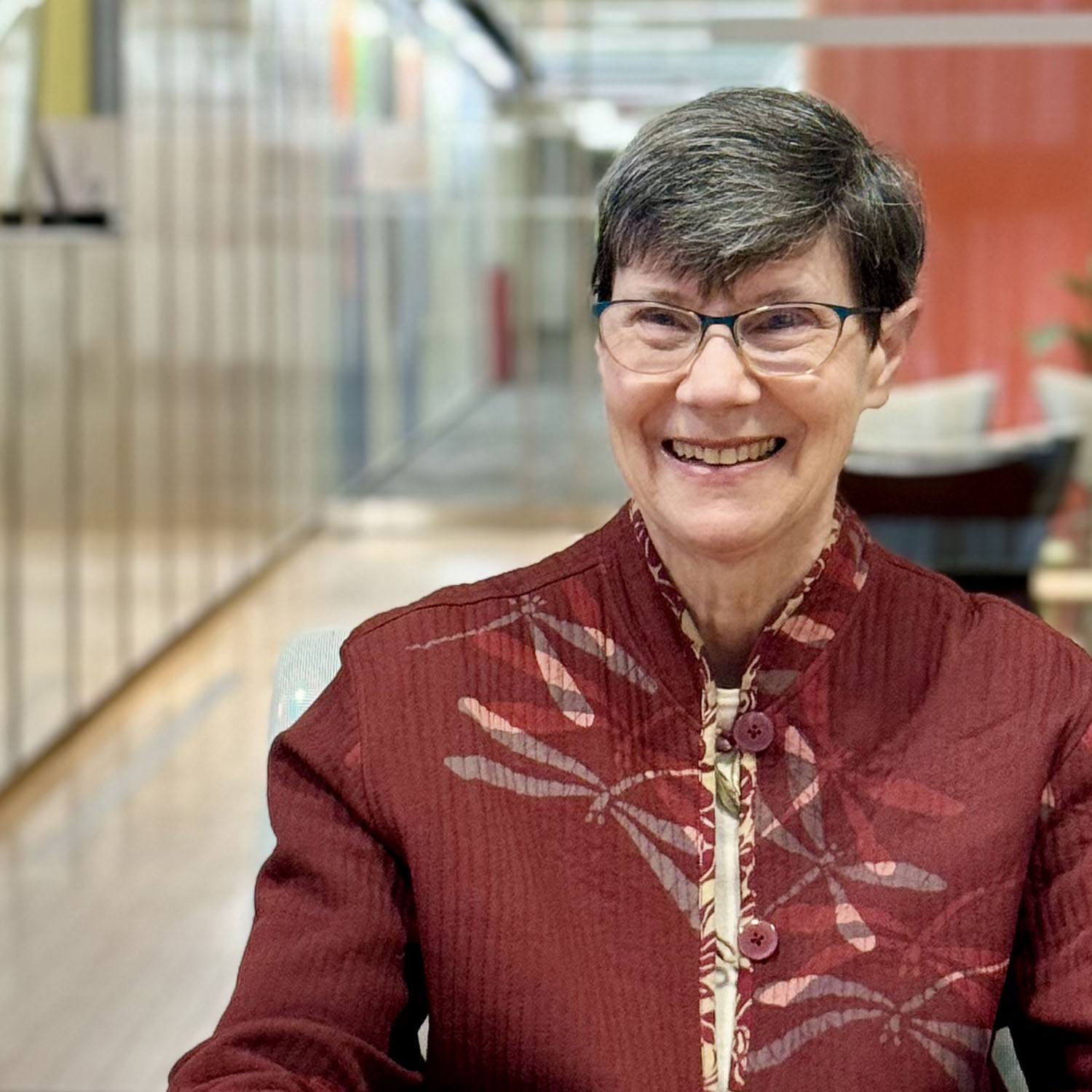Stepping Outside Helps Make Connections
Director’s Page
Helene M. Langevin, M.D.
March 30, 2022
Being outside is central to me. It’s during my frequent walks through the woods where I can collect my thoughts and connect with the world around me. I think it’s my love for that time in the forest that leaves me especially eager for the discussion with Suzanne Simard, Professor of Forest Ecology at the University of British Columbia, at the upcoming International Congress on Integrative Medicine and Health (ICIMH). We’ll be joined by John Weeks of the Journal of Integrative and Complementary Medicine to discuss the connections between Dr. Simard’s work and the field of complementary and integrative health.
Her story is compelling to me for many reasons. To start, she’s a fellow Canadian who grew up from French ancestry in British Columbia. Her upbringing among foresters gave her the unique insights and perspectives that led to her groundbreaking research on forests. Her work opened our eyes to the long unnoticed interplay between trees and upended the idea that forests were simply landscapes ruled by the “survival of the fittest.”
Debunking the long-held understanding that trees compete for sunlight and survive on their own, she demonstrated that forests run on cooperative, interdependent systems. Trees communicate and transfer nutrients through complex root and fungal systems, and vegetation that might be considered weeds siphoning off light or nutrients is in fact essential to the diversity needed for a healthy forest.
The connections between different types of trees are essential to the health of the whole forest.
It is in that understanding that I can see clear parallels between Dr. Simard’s work and NCCIH’s efforts to advance the science of whole person health. Just as herbicides and monoculture can weaken a forest’s ecosystem, singular or fragmented approaches to health are missed opportunities to address the complex and interconnected factors that contribute to a person’s health. The gains that come from understanding human health across biological, behavioral, social, and environmental domains mirror the benefits of supporting the diversity and “social cooperation” of plants and microbes in the forest.
Just as Dr. Simard’s work has prompted substantive rethinking about forest management, I am hopeful that the growing interest in fostering whole person research and a corresponding body of evidence will help reshape how we approach human health.
There is much to gain by widening our perspectives and drawing learnings from other disciplines. For those of you attending ICIMH in May, I hope you will join in this session with Suzanne Simard and John Weeks on Thursday, May 26 and learn more about other research being presented by NCCIH at this year’s meeting.
For More Information
- Join Us at the In-Person International Congress on Integrative Medicine and Health May 23–26.
- To learn which NCCIH staff are speaking at each ICIMH session, visit the NCCIH events page.
